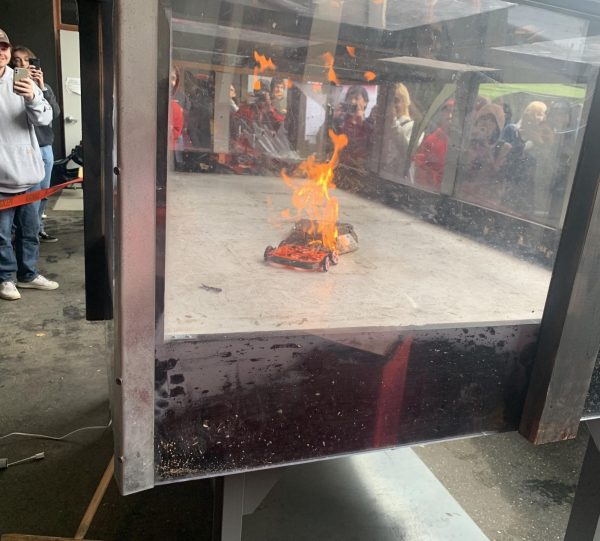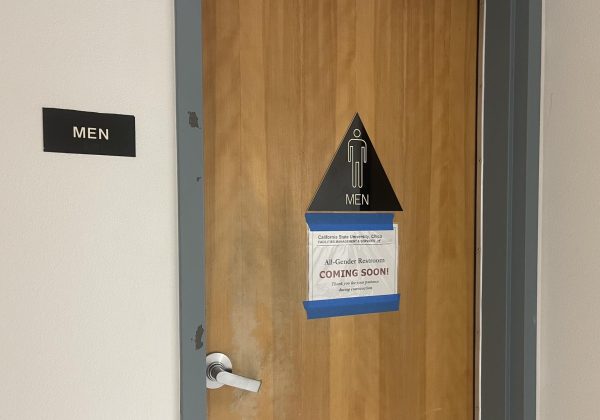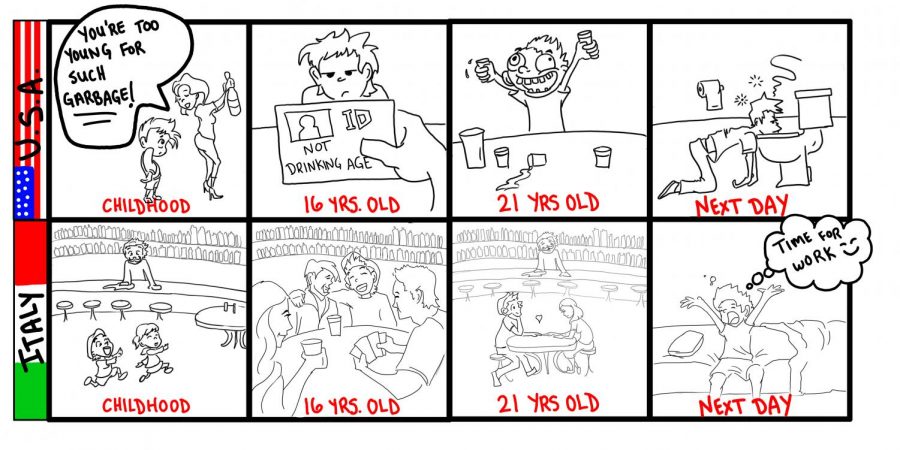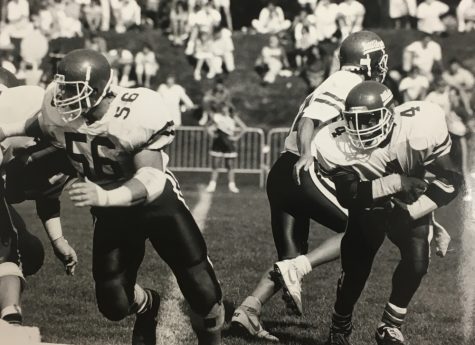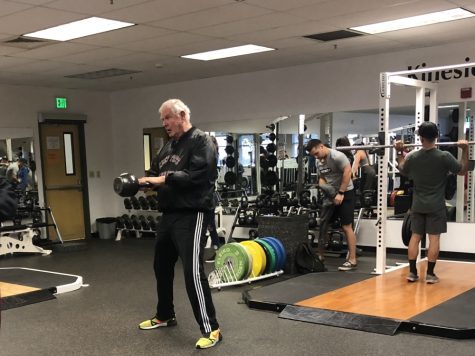Legal drinking age in U.S. creates more problems than solutions
Drinking culture differs greatly from the U.S. and other countries around the world. Photo credit: Jaime Munoz
Today, in addition to what the National Institute on Alcohol Abuse and Alcoholism regards as a “pervasive binge drinking culture,” the United States is one of the few countries in the world with a drinking age as high as 21.
Restricting adolescent’s exposure to alcohol may not be the best way to steer them towards healthy use in the future.
Everyone had one childhood friend whose parents refused to let him or her have any candy. A noble thought, until the kid got access to candy without parental supervision and began eating Kit Kat bars whole instead of in pieces. Coveting substances can lead to overindulgence.
Potentially harmful or addictive substances exist in society. Individuals need to learn about themselves in relation to these substances so they can healthily fit them into their lives.
Shauna Quinn, a former program manager for Chico State’s Campus Alcohol and Drug Education Center, said that in our society, “people don’t teach their kids how to drink.” Quinn stated that this stems from very puritanical views and stigmas surrounding sex and substances within our society.
However, not all countries have this binge drinking problem. I lived in Italy for a year. Italians drink socially, generally, without getting too out of control. They enjoy their night, have their own limit of alcohol and usually wake up the next morning able to function.
Italians also rarely pressure anyone to drink more than they are comfortable with. They have all been legally exposed to alcohol since the age of 16 and it is expected that everyone knows their own limits for having a good time.
Overdoing it and belligerently chanting Smash Mouth lyrics after failing to hold a decent conversation will usually cause you to negatively stand out.
A primary reason for this change in behavior stems from exposure to alcohol at a much younger age. With regards to alcohol, many other countries are “much more educated than our population,” Quinn said.
That being expressed, easier access for adolescents alone will not prevent us from binge drinking. To avoid binge drinking becoming a health issue, lowering the drinking age would need to be accompanied by a “cultural change,” Quinn said.
According to the National Institute on Alcohol Abuse and Alcoholism, binge drinking poses many threats to the developing brain. Therefore, we must be careful opening up alcohol access to adolescents. “Education is the main key,” Quinn said.
Attempting to shield our population from alcohol until the age of 21 doesn’t do anybody any good. According to the American Public Health Association, many students are binge drinking in college, often before the age of 21.
People love to drink. Alcohol is not going anywhere. It is better to start learning responsible usage sooner rather than later.
Grant Schmieding can be reached at [email protected] or @G_Schmieding on Twitter.
